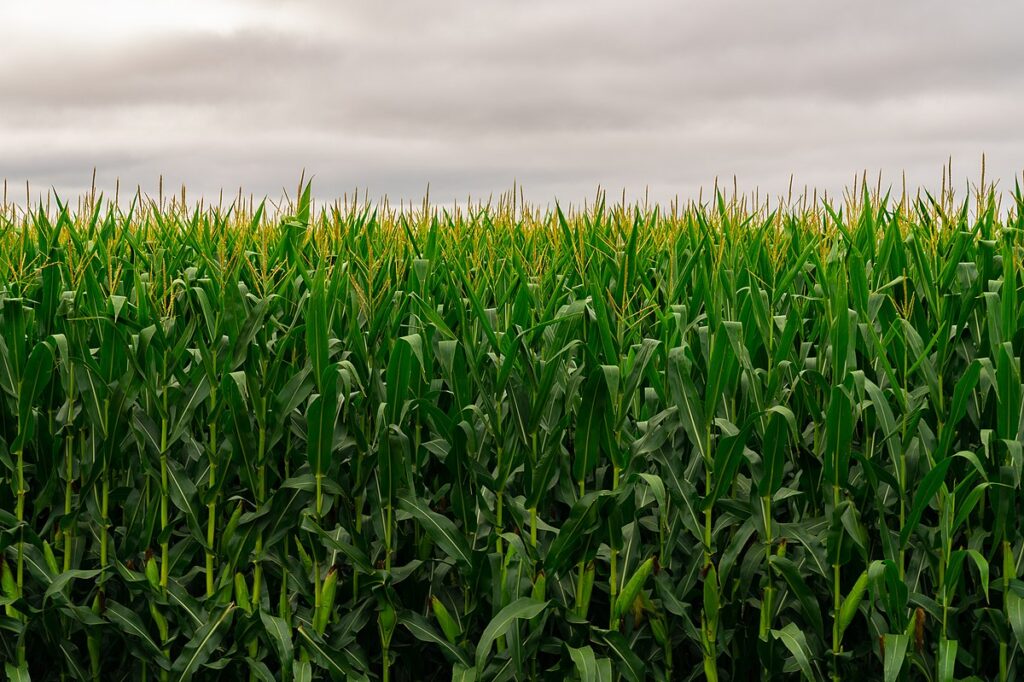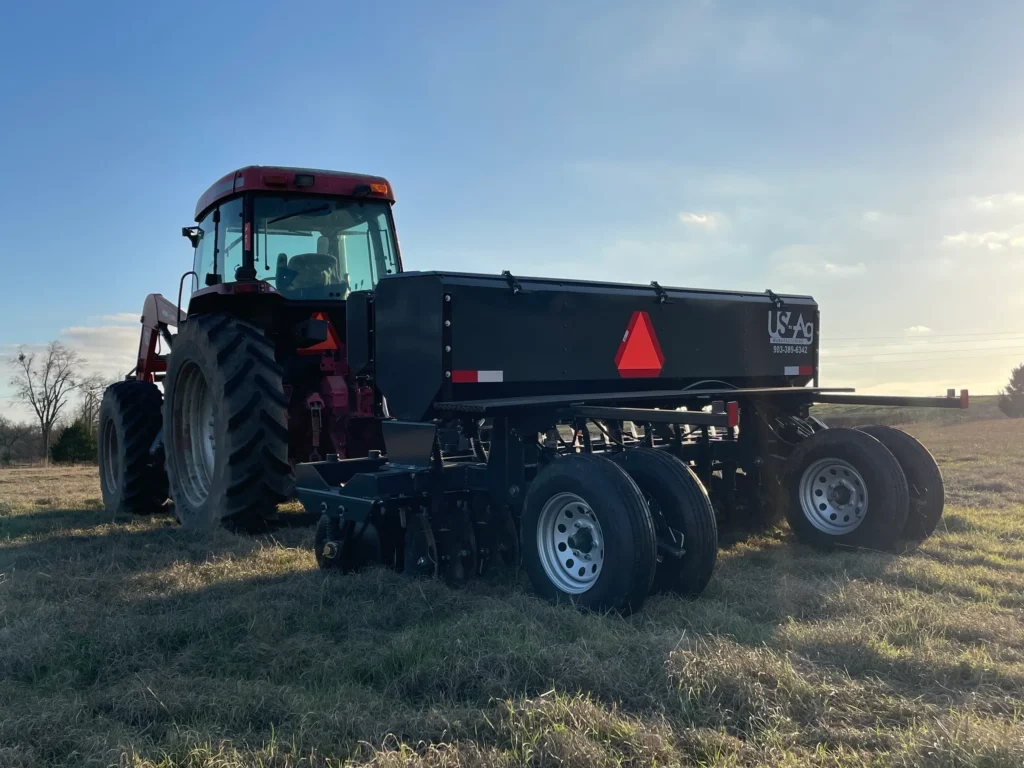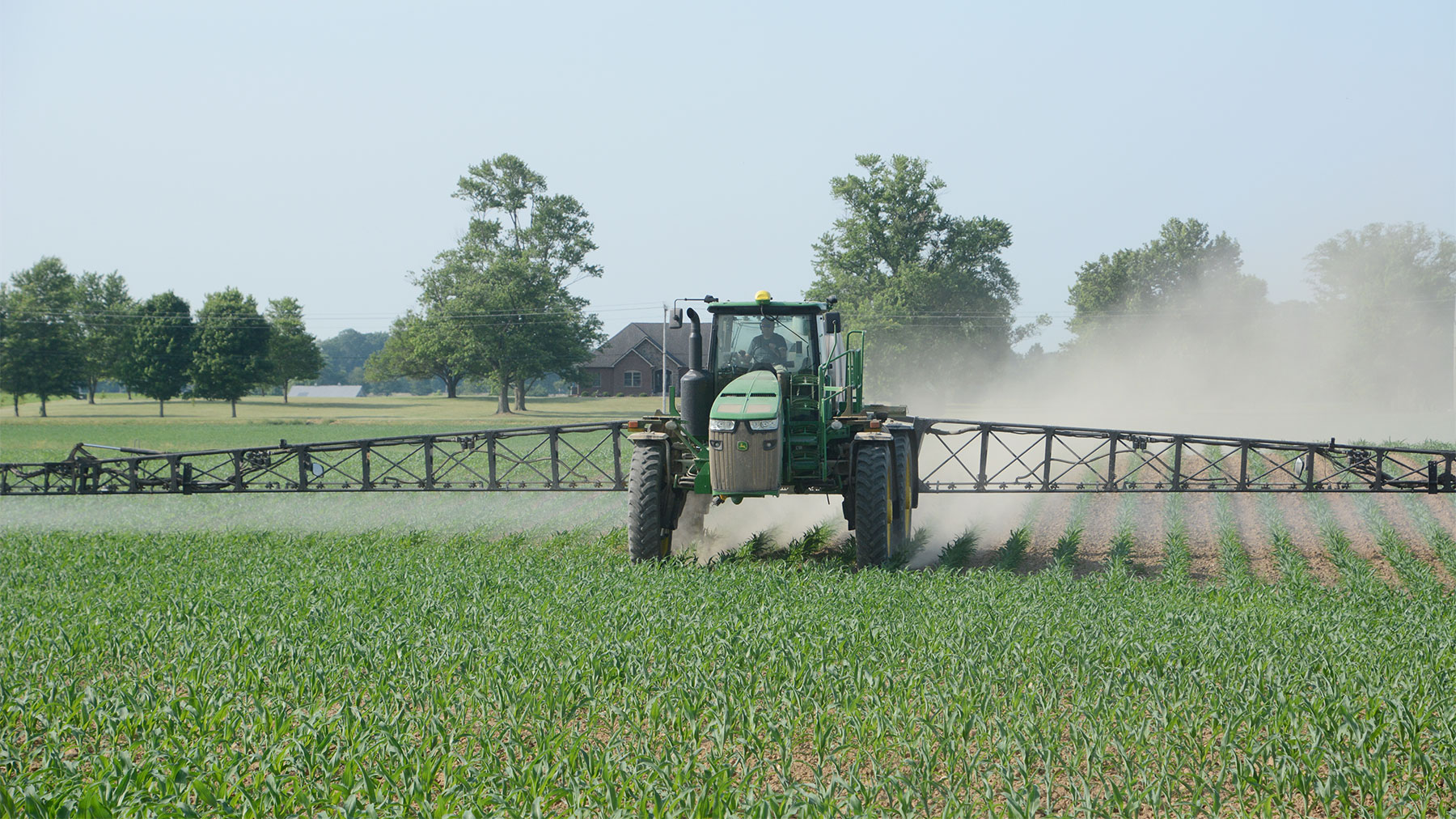Food & Climate
A government report found that no-till in U.S. is not a regenerative agriculture, but rather, it is one of the most pesticide-intensive agriculture.
No-till farming is widely lifted up as a leading form of regenerative agriculture in U.S. But Rethinking No-Till finds that most conventional no-till falls far short of the goals of regenerative agriculture, which include building soil health, protecting biodiversity, and supporting human wellbeing.
But we must restructure the public policies and market signals that lock in chemical-intensive agriculture in the U.S. to support farmers to achieve truly regenerative agriculture”, according to a report seen by “Food & Climate” platform.
Based on a first-of-its-kind analysis of U.S. Department of Agriculture (USDA) data, the report finds that most no-till systems are so heavily dependent on herbicides to manage weeds that a staggering one-third of total annual pesticide use (a term that includes herbicides, insecticides, and fungicides) in the U.S. can be attributed to no-till corn and soy production alone.
This chemical use has devastating consequences for soil life, human health, biodiversity, and the climate.
Top two no-till crops
No-till farming is nothing new. It was used as far back as 10,000 years ago. But as plow designs and production methods improved during Europe’s Agricultural Revolution in the 18th and early 19th centuries, tilling became increasingly popular. Farmers adopted the method because it allowed them to plant more seeds while expending less effort.
Tilling involves turning over the first 6 – 10 inches of soil before planting new crops. This practice works surface crop residues, animal manure and weeds deep into the field, blending it into the soil. It also aerates and warms the soil, according to “regeneration International“.

While no-till farming can be done without harmful chemicals, the (USDA) report finds that, for the top two no-till crops, corn and soy, the vast majority of acreage (93%) uses toxic herbicides that are linked to cancer, birth defects, infertility, neurotoxicity, disruption of the gut microbiome, endocrine disruption, and other serious human health impacts.
And glyphosate, the cancer-linked main ingredient in the widely criticized weedkiller Roundup, is the most widely used herbicide in no-till corn and soy.
These chemicals are being broadcast across nearly 100 million acres nationwide, predominantly in the American Heartland and Great Plains.
No-till typically increases herbicide use in conventional farming systems, and at least 90% of no-till corn and soy acres rely on seeds genetically engineered to withstand herbicides, further driving a cycle of increased herbicide use. On top of this, no-till corn seeds are almost always coated with neonicotinoid insecticides.
These chemicals are destroying the soil that grows our food and are decimating pollinators, which are essential to food production and healthy ecosystems.
They harm the soil microbiome and invertebrates like worms and beetles that are central to building healthy soils that can sequester carbon, conserve water, and enhance farmers’ resilience to droughts and floods.
Not a climate solution
The report debunks the faulty assumption that no-till increases stores of carbon in the soil, summarizing extensive scientific research showing there is no clear relationship between no-till and soil carbon sequestration.
Conventional no-till is also heavily dependent on fossil-fuel chemicals in the form of herbicides and synthetic fertilizers. The greenhouse gas emissions associated with these fossil-fuel-based inputs in no-till corn and soy are equivalent to that of 11.4 million cars on the road over an entire year — about the number of cars in the top nine no-till states combined.
Large-scale, chemical-intensive agriculture currently predominates in the U.S. not through the fault of farmers, but because that is what public policies and markets support.
Chemical companies are deeply intertwined with no-till’s ascendance because it increases the market for their toxic products. “Let paraquat be your plow,” reads a 1972 advertisement placed by Chevron in the magazine No-Till Farmer.
Paraquat is a toxic chemical that is commonly used as an herbicide (plant killer).

Now, pesticide companies are capitalizing on the growing interest in soil health by claiming conventional no-till is “regenerative.” But chemical farming is not regenerative — broadcasting toxic pesticides and overapplying synthetic fertilizers is incompatible with building soil health, human health, and ecosystem health.
A narrow focus on single practices like tillage is misleading — truly regenerative agriculture works with the farming system as a whole. Research shows that careful tillage in holistic farming systems can achieve better soil outcomes than chemical-intensive no-till systems, according to “Friends of the earth”.

